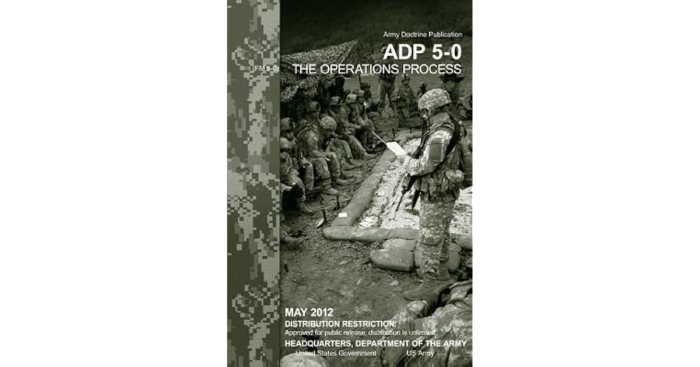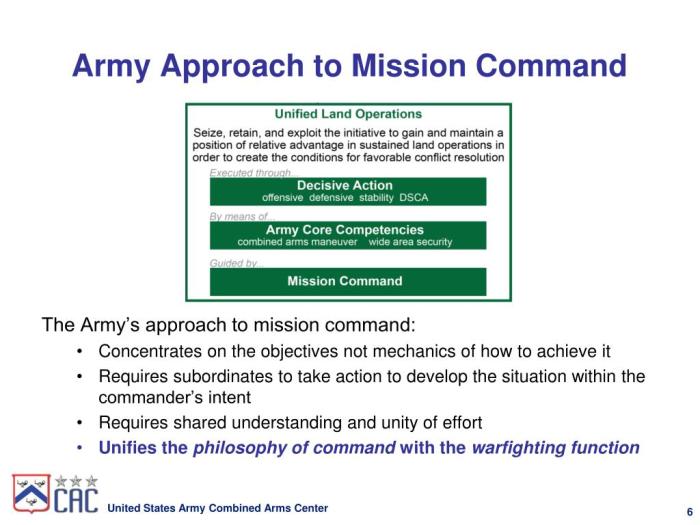Adp 5 0 board questions – Embark on an in-depth exploration of ADP 5.0 board questions, a powerful tool designed to enhance boardroom discussions and decision-making. This guide will delve into the purpose, significance, and applications of these questions, empowering you to harness their full potential.
ADP 5.0 board questions are meticulously crafted to facilitate insightful conversations, promote critical thinking, and drive effective outcomes. Their versatility extends to various settings, including board meetings, strategy sessions, and leadership development programs.
ADP 5.0 Board Questions

ADP 5.0 board questions are a series of questions designed to assess the knowledge and skills of individuals in the military who are preparing for promotion to the rank of brigadier general or above. These questions are based on the Army Doctrine Publication (ADP) 5.0, which is the foundational document for Army operations.
ADP 5.0 board questions are significant because they provide a standardized way to evaluate the qualifications of candidates for promotion. They ensure that all candidates are evaluated against the same criteria and that the selection process is fair and impartial.
Target Audience
ADP 5.0 board questions are primarily intended for officers who are eligible for promotion to the rank of brigadier general or above. However, they can also be used by other individuals who are interested in learning about Army doctrine and operations.
ADP 5.0 board questions can be quite challenging, especially if you’re not sure what to expect. If you need a break from studying, why not take a fun quiz to find out what meme you are? Take the quiz and share your results with your friends.
Then, come back and tackle those ADP 5.0 board questions with renewed focus and determination.
Real-World Scenarios
ADP 5.0 board questions are used in a variety of real-world scenarios, including:
- Promotion boards
- Professional development courses
- Training exercises
Key Concepts and Terminology
ADP 5.0 board questions assess an individual’s understanding of key concepts and terminology related to Army operations and doctrine. These questions are designed to evaluate an individual’s ability to apply these concepts and principles to real-world situations.
Essential Concepts
Essential concepts in ADP 5.0 board questions include:
- Mission command: The process by which commanders exercise authority and direction over assigned and attached forces to accomplish missions.
- Decentralized execution: The process by which subordinates are given the authority and responsibility to accomplish missions within the commander’s intent.
- Unity of command: The principle that every soldier is responsible to one commander.
- Span of control: The number of subordinates that a commander can effectively command and control.
Glossary of Terms
Commonly used terms in ADP 5.0 board questioning include:
- Area of operations: The geographical area in which a unit conducts its operations.
- Center of gravity: The critical point, characteristic, or vulnerability that, if attacked or exploited, will have a decisive effect on the enemy’s ability to conduct operations.
- Commander’s intent: The commander’s vision and guidance for the conduct of an operation.
- Decisive point: The location or event at which a commander intends to concentrate his or her forces to achieve a decisive result.
Principles and Methodologies
ADP 5.0 board questions are based on the principles and methodologies of Army operations. These principles include:
- Offensive operations: Operations designed to defeat the enemy and seize or retain territory.
- Defensive operations: Operations designed to protect friendly forces and territory from enemy attack.
- Stability operations: Operations designed to establish or maintain a secure environment in which civil authority can be restored or maintained.
The methodologies used in ADP 5.0 board questioning include:
- Mission analysis: The process of breaking down a mission into its component parts and identifying the key tasks that must be accomplished.
- Course of action development: The process of developing alternative courses of action to accomplish a mission.
- Decision-making: The process of selecting the best course of action and implementing it.
Question Structure and Analysis

ADP 5.0 board questions adhere to a standardized structure and format to ensure clarity, consistency, and objectivity in the assessment process.
Question Types and Purposes
ADP 5.0 board questions encompass a range of types, each designed to evaluate specific knowledge, skills, and abilities. These types include:
- Multiple Choice Questions:Present candidates with several answer options, testing their ability to recognize and select the correct response.
- True/False Questions:Require candidates to determine the veracity of a given statement, assessing their understanding of factual information.
- Short Answer Questions:Prompt candidates to provide concise, written responses, evaluating their ability to articulate knowledge and demonstrate comprehension.
- Essay Questions:Provide candidates with a topic or prompt, requiring them to compose a written response that demonstrates their analytical thinking, research skills, and ability to present a coherent argument.
Importance of Question Phrasing
The phrasing of ADP 5.0 board questions plays a crucial role in the quality of responses. Questions that are clear, concise, and unambiguous elicit more accurate and insightful answers. Conversely, questions that are poorly worded, ambiguous, or overly complex can lead to confusion and misunderstandings, compromising the assessment’s validity and reliability.
Question Development and Evaluation
Effective ADP 5.0 board questions guide meaningful discussions and foster a deeper understanding of complex issues. Here’s a framework to develop and evaluate board questions:
Question Development
When developing questions, consider the following best practices:
- Clarity and Precision:Questions should be concise, unambiguous, and focused on specific aspects of ADP 5.0.
- Relevance and Alignment:Questions should align with the overall purpose and objectives of the board meeting.
- Depth and Complexity:Questions should encourage thoughtful analysis and promote a comprehensive understanding of the topic.
- Balance and Diversity:Questions should cover various perspectives and encourage participation from all board members.
- Practicality and Applicability:Questions should relate to real-world scenarios and have practical implications for decision-making.
Question Evaluation
To ensure the quality and relevance of questions, consider the following criteria:
- Contribution to Discussion:Questions should facilitate meaningful dialogue and contribute to the overall understanding of the topic.
- Stimulation of Thought:Questions should provoke critical thinking, encourage different perspectives, and challenge assumptions.
- Alignment with Objectives:Questions should align with the specific goals and outcomes of the board meeting.
- Appropriate Level of Detail:Questions should provide sufficient context and detail without being overly complex or overwhelming.
- Constructive and Respectful:Questions should be phrased in a respectful and constructive manner, promoting collaboration and open discussion.
Question Appropriateness
The appropriateness of questions depends on the specific context and purpose of the board meeting. Consider the following factors:
- Board Composition and Expertise:The level of detail and complexity of questions should be tailored to the knowledge and experience of board members.
- Meeting Objectives:Questions should align with the specific agenda and goals of the meeting.
- Time Constraints:The number and length of questions should be considered in relation to the available time for discussion.
- External Factors:External events or industry trends may influence the appropriateness of certain questions.
Applications and Use Cases: Adp 5 0 Board Questions

ADP 5.0 board questions are widely applicable in various settings, including:
- Military training and education:To assess understanding of complex military concepts, tactics, and strategies.
- Civilian leadership development:To evaluate problem-solving, decision-making, and critical thinking skills in non-military contexts.
- Corporate training:To gauge the effectiveness of leadership development programs and identify areas for improvement.
Case studies demonstrate the successful use of ADP 5.0 board questions:
Case Study
The United States Military Academy at West Point uses ADP 5.0 board questions to evaluate cadets’ understanding of military operations and leadership principles. The questions challenge cadets to analyze complex scenarios, make decisions, and justify their reasoning, fostering critical thinking and problem-solving abilities.ADP
5.0 board questions offer several benefits:
- Comprehensive assessment:They cover a wide range of military and leadership concepts, providing a holistic evaluation.
- Objective evaluation:The standardized format ensures fairness and objectivity in assessment.
- Identification of strengths and weaknesses:The detailed feedback provided helps individuals identify areas for improvement.
However, limitations should also be considered:
- Time-consuming:Board questions can be lengthy and require significant preparation and time to complete.
- Stressful environment:The formal setting and panel of evaluators can create a stressful environment for some individuals.
- Potential bias:Subjective interpretations by evaluators may introduce some bias into the assessment process.
Future Trends and Developments

ADP 5.0 board questioning is constantly evolving, influenced by technological advancements and emerging best practices. These trends are shaping the future of ADP 5.0 board questions, enhancing their effectiveness and applicability.
Technology plays a crucial role in shaping the future of ADP 5.0 board questions. Artificial intelligence (AI) and natural language processing (NLP) are being integrated into questioning tools, enabling automated question generation and analysis. This enhances the efficiency and consistency of the questioning process.
AI and NLP
- AI and NLP automate question generation, saving time and ensuring consistency.
- These technologies analyze board responses, providing insights and identifying areas for improvement.
Virtual reality (VR) and augmented reality (AR) are also making inroads into ADP 5.0 board questioning. These technologies create immersive environments, allowing boards to visualize complex scenarios and make informed decisions.
VR and AR, Adp 5 0 board questions
- VR and AR provide immersive experiences, enhancing understanding of complex issues.
- These technologies facilitate remote participation, enabling wider access to board meetings.
As these technologies continue to advance, ADP 5.0 board questions will become more dynamic, interactive, and tailored to the specific needs of boards. They will empower boards to make informed decisions and effectively guide their organizations.
FAQ
What is the purpose of ADP 5.0 board questions?
ADP 5.0 board questions are designed to guide board discussions, promote critical thinking, and facilitate effective decision-making.
Who is the target audience for these questions?
ADP 5.0 board questions are primarily intended for board members, senior executives, and other participants in boardroom discussions.
How are ADP 5.0 board questions structured?
ADP 5.0 board questions typically follow a structured format, including open-ended questions, probing questions, and clarifying questions.
What are the benefits of using ADP 5.0 board questions?
ADP 5.0 board questions can enhance boardroom discussions, improve decision-making, mitigate risks, and foster a more engaged and collaborative board environment.